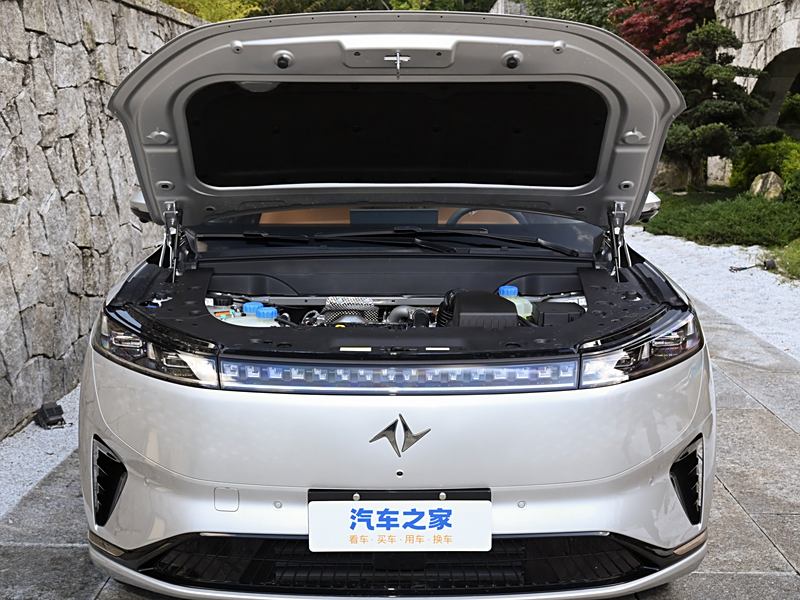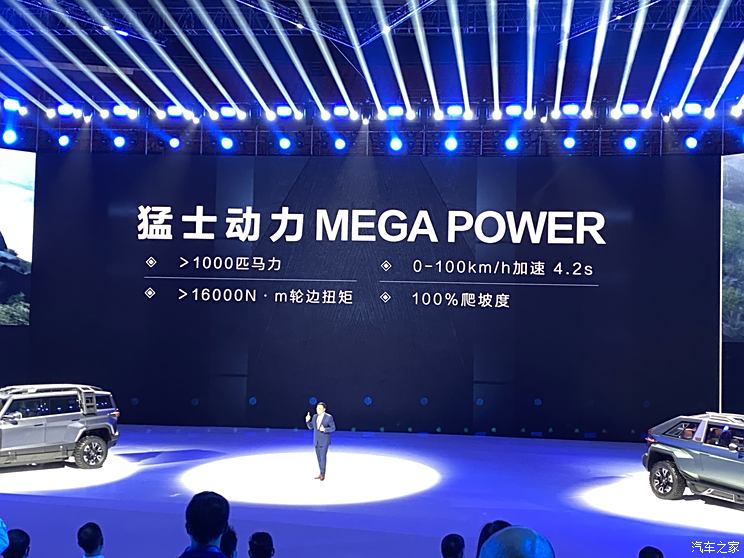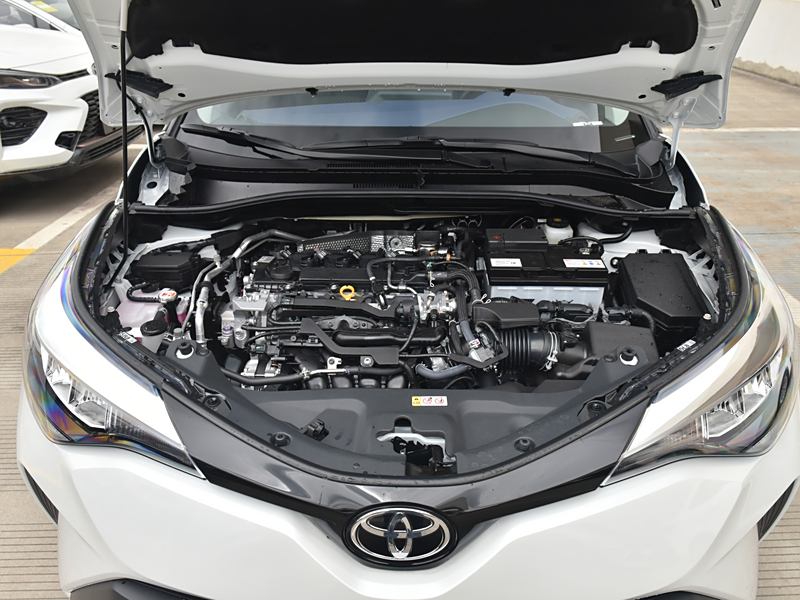China Quality News Network Recently, Taiyuan Municipal Market Supervision Administration issued an announcement on risk control and verification of 19 batches of unqualified food.

Announcement on risk control, verification and disposal of 19 batches of unqualified food
1. The food safety sampling inspection organized by Shanxi Provincial Market Supervision Administration involves four batches of unqualified food from four production and operation enterprises in our city. The verification and disposal are hereby notified as follows:
(a) the verification and disposal of black rice steamed bread distributed by Yufuxiang convenience store in yingze district, Taiyuan City.
1. Basic information: The black rice steamed bread distributed by Yufuxiang convenience store in yingze district City, Taiyuan City (the purchase date was November 5, 2021) was sampled for food safety inspection. After inspection, one batch of dehydroacetic acid and its sodium salt items were detected, which did not meet the requirements of food-related implementation standards, and the inspection conclusion was unqualified.
2. Punishment according to law: After on-site inspection of Yufuxiang convenience store in yingze district, Taiyuan City by law enforcement officers, the parties concerned purchased 6 bags of black rice steamed bread (4 bags/bag) from the supplier Haoxifu Steamed Bread Store in Wanbailin District, Taiyuan City on November 5, 2021, sampled and sold 4 bags, and the remaining 2 bags were disposed of by themselves. After investigation, the dehydroacetic acid and its sodium salt detected in this batch of black rice steamed bread are a kind of food additive allowed by the state, but it is not allowed to be added in the processed steamed bread, which is caused by the production and processing links. A separate investigation has been made on the supplier Haofufu Steamed Bread Shop in Wanbailin District, Taiyuan City. According to the provisions of Article 136 of the Food Safety Law of People’s Republic of China (PRC), it is decided to exempt the parties from administrative punishment.
(2) Check and dispose of leeks distributed by Qinhai International Branch of Taiyuan Dingshang Jiajiali Supermarket Co., Ltd.
1. Basic information: The leek distributed by Qinhai International Branch of Taiyuan Dingshang Jiajiali Supermarket Co., Ltd. was sampled for food safety inspection. After inspection, one batch of procymidone was detected, which did not meet the requirements of food-related implementation standards, and the inspection conclusion was unqualified.
2. Punishment according to law: After the on-site inspection of Qinhai International Branch of Taiyuan Dingshang Jiajiali Supermarket Co., Ltd. by law enforcement officers, the parties concerned purchased 4 kilograms of leeks, sampled and sold 2.5 kilograms, and the rest were sold out. After investigation, the procymidone project detected in this batch of leeks belongs to organochlorine pesticides as fungicides, which are mainly used in the planting process. The parties concerned could not provide the relevant qualification certification materials of the planting place, and failed to fulfill the obligations of incoming goods inspection and obtaining certificates and tickets as required. Law enforcement officers issued the Notice of Ordering Correction and the Decision of Administrative Punishment on the Spot, and the parties concerned have now rectified. According to the provisions of Article 50 of the Law on Quality and Safety of Agricultural Products in People’s Republic of China (PRC) and Article 126 of the Law on Food Safety in People’s Republic of China (PRC), the combined punishment for the two illegal acts of the parties concerned is as follows: confiscation of illegal income of 14.32 yuan, fine of 30,000 yuan, with a total amount of 30,014.32 yuan.
(3) Check and dispose of the bean jelly distributed by yingze district Wang Meiying Mianpi Liuxiang Store in Taiyuan City.
1. Basic information: The bean jelly distributed by Piliuxiang Store in Wang Meiying, yingze district, Taiyuan (the date of purchase was November 5, 2021) was sampled for food safety inspection. After inspection, one batch of aluminum residue (dry sample, calculated as A1) was detected, which did not meet the requirements of food-related implementation standards, and the inspection conclusion was unqualified.
2. Punishment according to law: After on-the-spot inspection by law enforcement officers at Pimian Liuxiang Store in Wang Meiying, yingze district, Taiyuan City, the parties concerned bought 4 kilograms of bean jelly on November 5, 2021, which was sold out and could not be recalled. After investigation, it was found that the unqualified reason was caused by the production and processing process. The parties failed to fulfill their obligations such as incoming goods inspection, obtaining certificates and tickets as required. Law enforcement officers issued a Notice of Ordering Correction and a Decision on Administrative Punishment on the Spot, and the parties have now made rectification. According to the provisions of Article 41 of the Regulations on the Management of Small Stalls in Small Food Workshops and Small Business Shops in Shanxi Province, the administrative department below the party concerned was given an illegal income of 41.96 yuan and a fine of 2,500 yuan, totaling 2,541.96 yuan.
(four) the verification and disposal of fried peanuts distributed by Shanxi Institute of Applied Science and Technology.
1. Basic information: The fried peanuts (processing date: October 25th, 2021) distributed by Shanxi Institute of Applied Science and Technology were sampled for food safety inspection, and aflatoxin B was detected in one batch.oneThe project does not meet the requirements of food-related implementation standards, and the inspection conclusion is unqualified.
2. Punishment according to law: After the on-site inspection of Shanxi Institute of Applied Science and Technology by law enforcement officers, the parties concerned purchased 10 kg of raw peanuts from the supplier Taiyuan Jincheng Zhiyuan Food Co., Ltd. on October 23, 2021, and all of them were processed into fried peanuts on October 25, 2021, and 2 kg was sampled and sold, and the rest were sold out. Law enforcement officers conducted an on-site inspection of the supplier Taiyuan Jincheng Zhiyuan Food Co., Ltd., and found that there was a bag of peanuts stored in the warehouse, and the ventilation condition of the on-site storage environment was poor. After investigation, aflatoxin B was detected in this batch of fried peanuts.oneThe exceeding standard of the project is due to the damp warehouse and improper storage of raw materials peanuts, and the supplier has been investigated separately. According to the provisions of Article 50 of People’s Republic of China (PRC) Agricultural Products Quality and Safety Law and Article 136 of People’s Republic of China (PRC) Food Safety Law, it is decided to exempt the parties from administrative punishment.
2. The food safety sampling inspection organized by Taiyuan Municipal Market Supervision Administration involves 11 batches of unqualified food and 2 batches of risk detection projects of 12 production and operation enterprises in our city. The verification and disposal are hereby notified as follows:
(1) Verification and disposal of apricot strips distributed by Guoling Food Store in Xinghualing District, Taiyuan City, whose nominal production enterprise is Chengde Hualang Food Co., Ltd.
1. Basic information: The sampling inspection of food safety was carried out on apricot strips (production date: March 14th, 2021) distributed by Guoling Food Store in Xinghualing District, Taiyuan City, whose nominal production enterprise was Chengde Hualang Food Co., Ltd. After inspection, one batch of sulfur dioxide residue items was detected, which did not meet the requirements of food-related implementation standards, and the inspection conclusion was unqualified.
2. Punishment according to law: After on-site inspection of Guoling Food Store in Xinghualing District, Taiyuan City by law enforcement officers, the party concerned purchased 1 box (10kg/box) of this batch of apricot strips, sampled and sold 1kg, and the rest were sold out, so it was impossible to recall them. After investigation, it was found that the residual sulfur dioxide in apricot strips distributed by the parties concerned was caused by excessive use of preservatives in the production and processing process, and the nominal production enterprise Chengde Hualang Food Co., Ltd. was verified and disposed of by Chengde Municipal Market Supervision Administration. The parties failed to fulfill the obligations of incoming goods inspection, obtaining certificates and tickets as required, and the law enforcement officers issued the Notice of Ordering Correction and the Decision of Administrative Punishment on the Spot, and the parties have now made rectification. According to the provisions of Article 41 of the Regulations on the Management of Small Stalls in Small Food Workshops and Small Business Shops in Shanxi Province, the administrative department below the party concerned shall be given a fine of 4,000 yuan, totaling 4,340 yuan.
(2) Check and dispose of the dough distributed by Yanling Snack Bar in jiancaoping district, Taiyuan City.
1. Basic information: The food safety sampling inspection was carried out on the dough distributed by Yanling snack bar in jiancaoping district, Taiyuan (the purchase date was November 10th, 2021). After inspection, one batch of benzoic acid and its sodium salt (calculated by benzoic acid), dehydroacetic acid and its sodium salt (calculated by dehydroacetic acid) were detected, which did not meet the requirements of food-related implementation standards, and the inspection conclusion was unqualified.
2. Punishment according to law: After on-site inspection of Yanling Snack Bar in jiancaoping district, Taiyuan City by law enforcement officers, the party concerned bought 2.5 kilograms of dough on November 10, 2021, which was sold out and could not be recalled. After investigation, it was found that the unqualified dough sold by the parties was caused by the production and processing links, and the parties failed to fulfill their obligations such as incoming goods inspection and obtaining certificates and tickets as required. Law enforcement officers issued a Notice of Ordering Correction and a Decision on Administrative Punishment on the Spot, and the parties have now made rectification. According to the provisions of Article 41 of the Regulations on the Management of Small Stalls in Small Food Workshops and Small Business Shops in Shanxi Province, the administrative department below the party concerned was given an illegal income of 21.5 yuan and a fine of 2,500 yuan, totaling 2,521.5 yuan.
(three) the verification and disposal of the dough distributed by Hongjuan Noodle Shop in Xinghualing District, Taiyuan City
1. Basic information: The food safety sampling inspection was carried out on the dough distributed by Hongjuan Noodle Shop in Xinghualing District, Taiyuan City (the purchase date was November 4, 2021). After inspection, one batch of benzoic acid and its sodium salt (calculated by benzoic acid), dehydroacetic acid and its sodium salt (calculated by dehydroacetic acid) were detected, which did not meet the requirements of food-related implementation standards, and the inspection conclusion was unqualified.
2. Punishment according to law: After on-site inspection by law enforcement officers at Hongjuan Noodle Shop in Xinghualing District, Taiyuan City, the party concerned bought 2.5 kilograms of dough on November 4, 2021, which was sold out and could not be recalled. After investigation, it was found that the unqualified dough sold by the parties was caused by the production and processing links, and the parties failed to fulfill their obligations such as incoming goods inspection and obtaining certificates and tickets as required. Law enforcement officers issued a Notice of Ordering Correction and a Decision on Administrative Punishment on the Spot, and the parties have now made rectification. According to the provisions of Article 41 of the Regulations on the Management of Small Stalls in Small Food Workshops and Small Business Shops in Shanxi Province, the administrative department below the party concerned was given an illegal income of 44.2 yuan and a fine of 2,500 yuan, totaling 2,544.2 yuan.
(four) the verification and disposal of bean jelly distributed by Tianbuhua snack bar in Wanbailin District of Taiyuan City.
1. Basic information: The bean jelly distributed by Tianbuhua snack bar in Wanbailin District, Taiyuan City (purchase date: November 11th, 2021) was sampled for food safety inspection. After inspection, one batch of aluminum residue (dry sample, calculated as Al) was detected, which did not meet the requirements of food-related implementation standards, and the inspection conclusion was unqualified.
2. Punishment according to law: After on-the-spot inspection by law enforcement officers at Tianbuhua Snack Bar in Wanbailin District, Taiyuan City, the party concerned bought 5 kg of bean jelly on November 11, 2021, which was sold out and could not be recalled. After investigation, it was found that the unqualified reason of the bean jelly distributed by the party concerned was caused by the production and processing links. The party concerned failed to fulfill the obligations of incoming goods inspection, obtaining certificates and tickets as required, and the law enforcement officers issued the Notice of Ordering Correction and the Decision of Administrative Punishment on the Spot. The party concerned has now made rectification. According to the provisions of Article 41 of the Regulations on the Management of Small Stalls in Small Food Workshops and Small Business Shops in Shanxi Province, the administrative department below the party concerned was given an illegal income of 144 yuan and a fine of 2,500 yuan, totaling 2,644 yuan.
(five) the verification and disposal of the vermicelli distributed by xiaodian district Linxin Snack Bar in Taiyuan City.
1. Basic information: The food safety sampling inspection was carried out on the vermicelli distributed by Linxin Snack Bar in xiaodian district, Taiyuan City (the purchase date was August 25th, 2021). After inspection, one batch of aluminum residue (dry sample, calculated as Al) was detected, which did not meet the requirements of food-related implementation standards, and the inspection conclusion was unqualified.
2. Punishment according to law: After on-site inspection of Linxin snack bar in xiaodian district, Taiyuan by law enforcement officers, the parties concerned bought 10kg of vermicelli on August 25th, 2021, which was sold out and could not be recalled. After investigation, it was found that the unqualified vermicelli distributed by the party concerned was caused by the production and processing links, and the party concerned failed to fulfill the obligations of incoming goods inspection, obtaining certificates and tickets as required. Law enforcement officers issued the Notice of Ordering Correction and the Decision of Administrative Punishment on the Spot, and the party concerned has now made rectification. According to the provisions of Article 41 of the Regulations on the Management of Small Stalls in Small Food Workshops and Small Business Shops in Shanxi Province, the administrative department below the party concerned was given an illegal income of 454.9 yuan and a fine of 2,500 yuan, totaling 2,954.9 yuan.
(VI) Check and dispose of the aged vinegar (fermented vinegar) whose nominal production enterprise is Shanxi Gengyuquan Vinegar Industry Co., Ltd. distributed by Chen Shouliang Food Supermarket in Wanbailin District of Taiyuan City.
1. Basic information: fermented vinegar, the aged vinegar (production date: January 1, 2021) distributed by Chen Shouliang Food Supermarket in Wanbailin District, Taiyuan City, whose nominal production enterprise is Shanxi Gengyuquan Vinegar Industry Co., Ltd., was sampled for food safety inspection. After inspection, one batch of non-volatile acid (calculated by lactic acid) was detected, which did not meet the requirements of food-related implementation standards, and the inspection conclusion was unqualified.
2. Punishment according to law: After the on-site inspection of Chen Shouliang Food Supermarket in Wanbailin District, Taiyuan City by law enforcement officers, the parties concerned purchased 60 barrels of this batch of mature vinegar from the supplier jiancaoping district Hengjia Food Store in Taiyuan City on January 25th, 2021, sampled and sold 7 barrels, and the rest have been sold. The supplier has investigated another case. After investigation, the unqualified nonvolatile acid and total acid of this batch of mature vinegar should be caused by improper control of fermentation process in the production and processing process. The nominal production enterprise Shanxi Gengyuquan Vinegar Industry Co., Ltd. has been investigated by Qingxu County Market Supervision Bureau. According to the provisions of Article 50 of the Product Quality Law of People’s Republic of China (PRC), the party concerned was given an administrative penalty of 29.5 yuan and a fine of 500.5 yuan. The total amount is 530 yuan.
(seven) the verification and disposal of the dough distributed by Xiaozhang fast food restaurant in yingze district, Taiyuan City.
1. Basic information: The food safety sampling inspection was carried out on the dough distributed by Xiaozhang fast food restaurant in yingze district, Taiyuan (the purchase date was October 25th, 2021). After inspection, one batch of benzoic acid and its sodium salt (calculated by benzoic acid) was found, which did not meet the requirements of food-related implementation standards, and the inspection conclusion was unqualified.
2. Punishment according to law: After on-site inspection of Xiaozhang fast food restaurant in yingze district, Taiyuan City by law enforcement officers, the party concerned bought 2.5 kilograms of dough on October 25th, 2021, which was sold out and could not be recalled. After investigation, it was found that the unqualified dough sold by the parties was caused by the production and processing links, and the parties failed to fulfill their obligations such as incoming goods inspection and obtaining certificates and tickets as required. Law enforcement officers issued a Notice of Ordering Correction and a Decision on Administrative Punishment on the Spot, and the parties have now made rectification. According to the provisions of Article 41 of the Regulations on the Management of Small Stalls in Small Food Workshops and Small Business Shops in Shanxi Province, the administrative department below the party concerned was given an illegal income of 59.6 yuan and a fine of 2,500 yuan, totaling 2,559.6 yuan.
(eight) the verification and disposal of the dough distributed by jiancaoping district Wanpi Noodle Shop in Taiyuan City.
1. Basic information: The food safety sampling inspection was carried out on the dough distributed by jiancaoping district Wanpi Noodle Shop in Taiyuan (the purchase date was October 14th, 2021). After inspection, one batch of benzoic acid and its sodium salt (calculated by benzoic acid), dehydroacetic acid and its sodium salt (calculated by dehydroacetic acid) were detected, which did not meet the requirements of food-related implementation standards, and the inspection conclusion was unqualified.
2. Punishment according to law: After on-the-spot inspection by law enforcement officers in jiancaoping district, Taiyuan City, the party concerned bought 3 kilograms of dough on October 14, 2021, which was sold out and could not be recalled. After investigation, it was found that the unqualified dough sold by the parties was caused by the production and processing links, and the parties failed to fulfill their obligations such as incoming goods inspection and obtaining certificates and tickets as required. Law enforcement officers issued a Notice of Ordering Correction and a Decision on Administrative Punishment on the Spot, and the parties have now made rectification. According to the provisions of Article 41 of the Regulations on the Management of Small Stalls in Small Food Workshops and Small Business Shops in Shanxi Province, the administrative department below the party concerned was given an illegal income of 51.6 yuan and a fine of 2,100 yuan, totaling 2,151.6 yuan.
(9) Check and dispose of the fried dough sticks made by yingze district Yanhong Nutrition Restaurant in Taiyuan City.
1. Basic information: The fried dough sticks made by yingze district Yanhong Nutrition Restaurant in Taiyuan City (processing date: October 28th, 2021) were sampled for food safety inspection. After inspection, one batch of aluminum residue (dry sample, calculated as Al) was detected, which did not meet the requirements of food-related implementation standards, and the inspection conclusion was unqualified.
2. Punishment according to law: After on-site inspection of Yanhong Nutrition Restaurant in yingze district, Taiyuan City by law enforcement officers, it was found that the parties involved used the food additive "Shuangxi brand baking powder" to make fried dough sticks. After investigation, on October 28th, 2021, the parties fermented a total of 5kg of dough for making fried dough sticks, which was sold out and could not be recalled. After investigation, it was found that the unqualified fritters made by the parties concerned were caused by excessive use of weighing tools for food additives during the production and processing of fritters, and the parties failed to fulfill their obligations such as incoming goods inspection and obtaining certificates and tickets as required. Law enforcement officers issued the Notice of Ordering Correction and the Decision of Administrative Punishment on the Spot, and the parties have now made rectification. According to the provisions of Article 41 of the Regulations on the Management of Small Stalls in Small Food Workshops and Small Business Shops in Shanxi Province, the administrative department below the party concerned was given 60 yuan for collecting illegal income, and a fine of 2,500 yuan was imposed, totaling 2,560 yuan.
(10) Check and dispose of the white rice noodles distributed by Qinji Rice Noodles Mala Tang Store in Xinghualing District, Taiyuan City.
1. Basic information: The white rice noodles distributed by Qinji Rice Noodles Mala Tang Store in Xinghualing District, Taiyuan City (purchase date: November 3, 2021) were sampled for food safety inspection. After inspection, one batch of dehydroacetic acid and its sodium salt (calculated by dehydroacetic acid) were detected, which did not meet the requirements of food-related implementation standards, and the inspection conclusion was unqualified.
2. Punishment according to law: After on-site inspection by law enforcement officers at Qinji Mianpi Mala Tang Store in Xinghualing District, Taiyuan City, the party concerned bought 10 kilograms of white rice noodles on November 3, 2021, which was sold out and could not be recalled. After investigation, it was found that the unqualified reason of the white flour dough distributed by the parties was caused by the production and processing links. The parties failed to fulfill their obligations such as incoming goods inspection and obtaining certificates and tickets as required. Law enforcement officers issued a Notice of Ordering Correction and a Decision on Administrative Punishment on the Spot, and the parties have now made rectification. According to the provisions of Article 41 of the Regulations on the Management of Small Stalls in Small Food Workshops and Small Business Shops in Shanxi Province, the administrative department below the party concerned was given an illegal income of 228 yuan and a fine of 2,500 yuan, totaling 2,728 yuan.
(eleven) the verification and disposal of bean jelly distributed by Shanxi Xinghuatang Binxi Catering Co., Ltd.
1. Basic information: The bean jelly distributed by Shanxi Xinghuatang Binxi Catering Co., Ltd. (purchase date: November 10, 2021) was sampled for food safety inspection. After inspection, one batch of aluminum residue (dry sample, calculated as Al) was detected, which did not meet the requirements of food-related implementation standards, and the inspection conclusion was unqualified.
2. Punishment according to law: After on-site inspection of Shanxi Xinghuatang Binxi Catering Co., Ltd. by law enforcement officers, the parties concerned bought 10.35 kg of bean jelly from the manufacturer jiancaoping district Jindakang Food Processing Factory in Taiyuan City on November 10, 2021, which has been sold out and cannot be recalled. After investigation, the unqualified reason of the bean jelly distributed by the party concerned was caused by the production and processing links, and the production enterprise has investigated and dealt with another case. According to the provisions of Article 136 of the Food Safety Law of People’s Republic of China (PRC), it is decided not to impose administrative punishment on the parties concerned.
(12) Check and dispose of mutton rolls and beef rolls distributed by Jiuxin Restaurant of Xianhezhuang in Xinghualing District of Taiyuan City.
1. Basic information: The food safety risk of mutton rolls and beef rolls (production date: November 9, 2021) distributed by Jiuxin Restaurant in Xianhezhuang, Xinghualing District, Taiyuan City was monitored. After inspection, two batches of duck-derived and pig-derived ingredients were detected.
2. Punishment according to law: After on-site inspection of Jiuxin Restaurant in Xianhezhuang, Xinghualing District, Taiyuan City by law enforcement officers, the party concerned purchased 50 kilograms of raw materials for this batch of mutton rolls, and cut 10 kilograms with a meat cutter on November 9, 2021, sampling and selling 2 kilograms, and the rest have been sold out; Bought 100 Jin of beef rolls, cut 10 Jin with a meat cutter on November 9, 2021, sampled and sold 2 Jin, and the rest have been sold out. Because mutton rolls and beef rolls are ready-to-eat foods, customers can’t recall them after ordering. After investigation, this batch of mutton rolls and beef rolls was caused by the mixed use of the same meat cutter, which caused the problem of duck-derived and pig-derived ingredients. Law enforcement officers ordered the parties to rectify the operation process on the spot, and re-sampled and inspected similar samples on January 19, 2022. The inspection results did not detect duck components and pig components. According to Article 52 of the Measures for the Administration of Sampling Inspection of Food Safety (Order No.15 of the General Administration of Supervision), there is no standard for the project of risk monitoring for the time being, so there is no clear illegal fact about the above-mentioned business behavior of the parties, so the case will not be filed.
Three, other provinces and municipalities market supervision and Management Bureau organized food safety sampling, involving two batches of unqualified food production and operation enterprises in our city, the verification and disposal situation is hereby notified as follows:
(1) Check and dispose of Datong fresh vermicelli produced by Lee’s vermicelli processing department in Wanbailin District, Taiyuan City.
1. Basic information: Datong fresh vermicelli (production date: November 20, 2021) produced by Lee’s vermicelli processing department in Wanbailin District, Taiyuan City was sampled for food safety inspection. After inspection, sorbic acid and its potassium salt (calculated as sorbic acid) were found in one batch, which did not meet the requirements of food-related implementation standards, and the inspection conclusion was unqualified.
2. Punishment according to law: After on-site inspection by law enforcement officers in the processing department of Lee’s vermicelli in Wanbailin District, Taiyuan City, the party concerned produced 50 bags (20 kg) of vermicelli on November 20, 2021. All the products in the above batches have been sold. After investigation, sorbic acid and its potassium salt (calculated by sorbic acid) were found to be an acidic preservative in the fresh vermicelli produced by the party concerned, which should not be added in the processing of vermicelli. The party concerned used the food additive beyond the scope, resulting in unqualified products. According to the provisions of Article 41 of the Regulations on the Management of Small Stalls in Small Food Workshops and Small Business Shops in Shanxi Province, the parties concerned were ordered to correct the above-mentioned illegal acts, and the illegal income was 27.5 yuan, and the fines were 2,100 yuan, totaling 2,127.5 yuan.
(2) Check and dispose of dried shrimps produced by Shanxi Branch of Zhejiang Yipin Shuang Food Co., Ltd.
1. Basic information: The dried shrimps produced by Shanxi Branch of Zhejiang Yipin Shuang Food Co., Ltd. (production date: October 13, 2021) were sampled for food safety inspection. After inspection, one batch of N- dimethylnitrosamine was detected, which did not meet the requirements of food-related implementation standards, and the inspection conclusion was unqualified.
2. Punishment according to law: After on-site inspection of Shanxi Branch of Zhejiang Yipin Shuang Food Co., Ltd. by law enforcement officers, the parties concerned produced 100 bags of dried shrimps (80G/ bag) on October 13, 2021, 5 bags were used for ex-factory inspection, and the remaining 95 bags were all sold out. After posting the recall notice, the recall quantity was zero. After investigation, the project of detecting N- dimethylnitrosamine in dried shrimps produced by the party concerned is an organic compound widely existing in nature and formed under suitable conditions. The appearance in batches of dried shrimps may be caused by the stale raw materials used or the lax control of sanitary conditions during production and processing. According to the provisions of Article 124 of the Food Safety Law of People’s Republic of China (PRC), the party concerned was given the following administrative office to collect illegal income of 2,736 yuan and impose a fine of 70,000 yuan, totaling 72,736 yuan.
Taiyuan market supervision management bureau
July 5, 2022


























